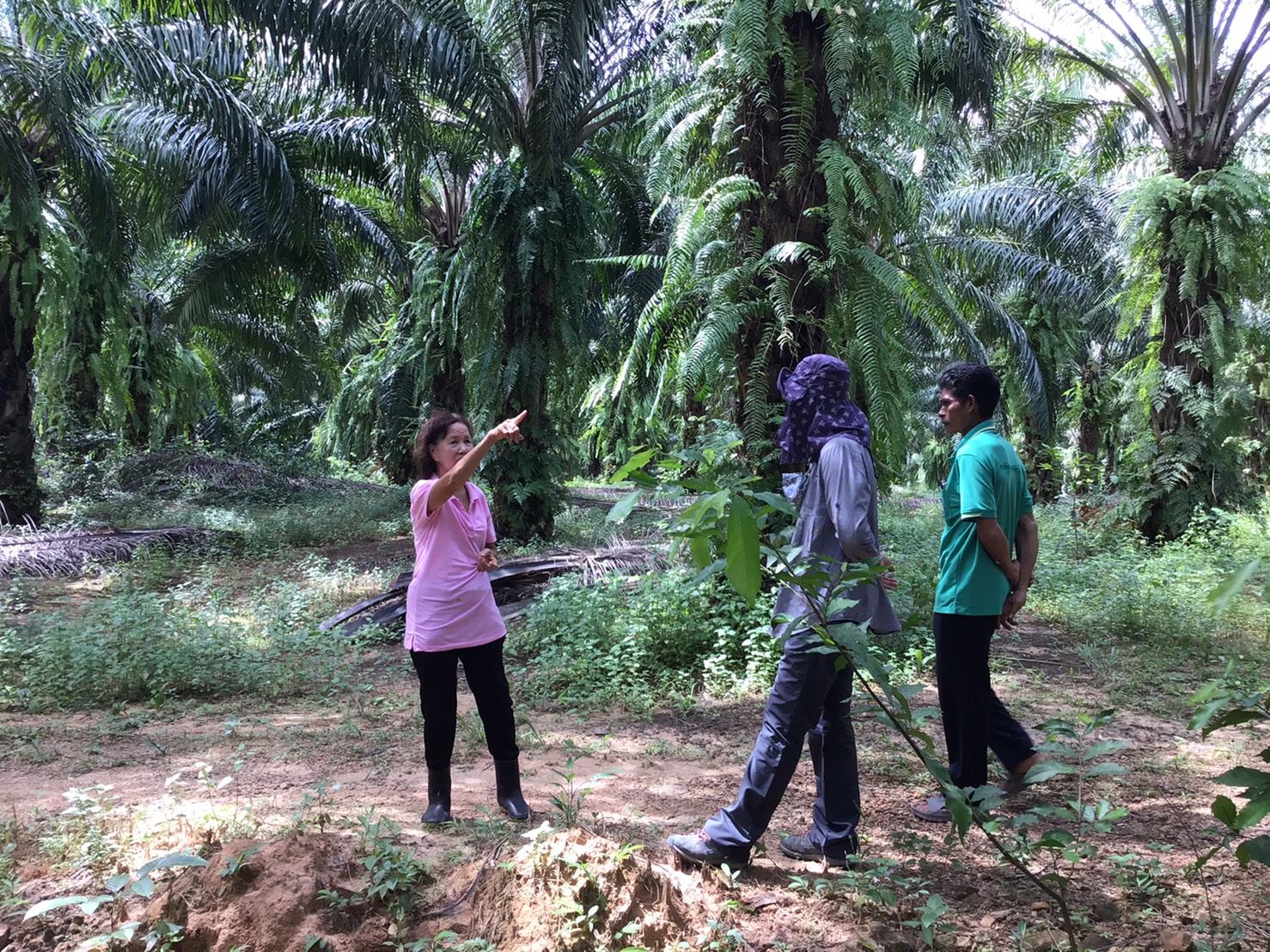
About the group
Number of smallholders: 692 (446 Men, 246 Women)
Total Land Area: 5065.38 Ha
Status: Certified
Group location: 99 Moo 3, Kalasae Sub-district, Sikao District, Trang Province 92150
Country: Thailand
On-going Facilitator: Pitakpalmoil Co.,Ltd.
SUSTAINABILITY JOURNEY STORY
“We are proud to be the first group in Thailand to make the impossible possible”
Mr. Virayute Wirotwannakul, Former Group Manager of Theppitak Palm Community Enterprise
“I have been selling oil palm for quite some time. As an oil palm producer, I was expected to dress nicely and conduct farm management trainings. The majority of local farmers did not have any higher education, and more than 90% of them were elderly. It is difficult to explain each topic at least three times,” Virayute Wirotwannakul shared when discussing the background story of before the community enterprise was established.
“The group envisioned that RSPO Certification would enable them to get quality yield and sell at premium prices,” Virayute explained about the decision to join RSPO. “Compliance with RSPO Standards helps members better understand farm management and improve productivity. Furthermore, members learn about environmental protection and social responsibilities for Workers and communities.
“RSPO Certification had positive economic and social impacts on the communities surrounding palm plantation areas. RSPO Certified palm fruits are bought at higher prices than uncertified palms. The extraction mill of Theppitak Palm Oil Company Limited paid more for high-quality, RSPO Certified palm fruits than for uncertified fruits. Some uncertified farmers sell their palm at lower prices. This may have an impact on nearby extraction mills that are not RSPO Certified. They may be unable to buy as much product from farmers since farmers are increasingly selling at premium prices to RSPO extraction mills.”
As for the positive impacts of transitioning to sustainable oil palm plantation, Virayute shared, “Farmers began to have more knowledge about both palm cultivation and farm management. Stakeholders from various sectors acknowledged the importance of environmental protection and became more aware of high conservation value areas.”
When asked if the group received any assistance from its alliance, the Former Former Group Manager stated, “Theppitak Palm Community Enterprise signed a Memorandum of Understanding (MOU) with the extraction mill of Pitak Palm Oil Company Limited. The MOU is a mutual agreement to cooperatively promote and support the development of members from Theppitak Palm Oil Community Enterprise in order to achieve true sustainability.
“Pitak Palm Oil Company Limited has become a mentor of Community Enterprise after smallholders expressed their interest in improving farming areas and sustaining their profession by applying for RSPO Certification. This necessitates the knowledge and trainings of academics in related subjects.
“What makes Theppitak Palm Community Enterprise stand out is that they apply marketing principles from upstream (smallholders), through midstream (extraction mills and palm oil refinery mills), to downstream (buyers) until they have achieved a fully integrated marketing management system.
“We have a consensus that the best method to manage for sustainability is to produce physical high-quality products. Products from extraction mills should be tangible so as to be supplied to refinery plants, and further to end users so that they can generate quality consumable products. With physical quality products like this, the group will truly sustain itself” said the Manager of Theppitak Palm Oil Community Enterprise.
“All palm oil products from our members are sold at the same prices throughout the year,” he stated. “The group also pays dividends to members every year and intends to pay more in the future. This is consistent with the group regulations approved by members at the Annual General Meeting.
“Farmers who apply systematic farming practices and keep required farm records receive an extra 25 satang per kilogram (kg) as a premium for every kg sold,” Virayute added. “Furthermore, it took nearly a year after signing the MOU to actually begin trading. Many adjustments were made in order to be labelled Identity Preserved (IP), which needed investment in various areas, both at the refinery and extraction mills where separate tanks, specific filtration systems, signage creation and the addition of pipes into the production process are required to produce quality oil in accordance with Certificate and IP requirements.
“Many people believed that Thailand could not be IP because the majority of transactions were small, unlike some countries where there are tens or even hundreds of thousands of rai palm plantation areas surrounding factories. Thai smallholders may have areas as small as 2 rai. Others have just 10 or 20 rai. It can take a lot of individual smallholders to combine all areas to be tens of thousands of rai,” said Virayute.
He also mentioned other challenges. “It was extremely difficult to bring 500–600 farmers together for trainings at the same time. Their routine is to simply sell palm oil, but they were suddenly asked to dress appropriately and participate in the training. However, members currently sell physical palm fruit rather than certificates. Sustainable palm oil systems will not progress if we only offer certificates.
“We are proud to be the first group in Thailand to make the impossible possible, contribute to society while adhering to RSPO Standards. Our farmers are also proud of this achievement,” the Former Group Manager remarked.
Asked if the group ever used RSPO tools such as the High Conservation Value (HCV) application, Virayute responded, “The group has not yet implemented such tools but does use the HCV evaluation form in assessing farmers who become group members. This year the group will be applying the HCV application as recommended by RSPO Auditors as well as aligning with the new, more stringent regulations to strengthen the group’s work.”
For Virayute, “changing farmers’ mindset to understand correct palm plantation for higher quality and sustainability” served as the group’s biggest hurdle in transitioning to sustainable plantation. “Recently, the group conducted outreach programs to educate people on RSPO Standards. Experts in the area collaborated with group managers, group committees and farmer mentors. They went into the field to provide hands-on knowledge. Farmers are willing to participate in quality palm plantation initiatives and adapt their farming practices to be sustainable. The group has made significant progress in inspiring more farmers to embrace sustainable plantation practices and join RSPO each year.
“In terms of the plan for sustainable palm oil production for the next year to five years, we intend to increase the number of RSPO Members as well as plantation areas, and we will calculate the yield in advance each year. All data will be estimated in advance for five consecutive years.”
When asked to identify the biggest change after switching to sustainable oil palm plantations, the Manager of Theppitak Community Enterprise stated, “Farmers can sell palm fruits at higher, premium prices, allowing them to live more sustainably. Furthermore, there has been an increase in quality yield in selling Fresh Fruit Bunches to extraction mills. RSPO Farmers have better knowledge and understanding of the system. That leads to cooperation in farm management and the trustworthy record-keeping required for continued quality improvement and development.”
According to Virayute, “The key to being certified long-term is cooperation and teamwork among group managers, group committees, mentors and smallholders.”
Regarding specifics in coordination with smallholders, “Aside from primarily communicating via telephone, invitation letters or documents requiring members’ signatures are sent out. The group manages this by dividing into zone areas. Mentors and group committees must visit the area on their own as coordinators, and the coordinator must be a person who resides in the same area as the smallholders for ease of engagement and communication.”
According to Virayute, “Smallholders must understand and voluntarily comply with RSPO Standards in order to acquire RSPO Certification. To become RSPO Certified, they must precisely answer the questions and provide relevant proof.
“As a Former Group Manager, future challenges following RSPO Certification include the need for RSPO to strengthen or improve marketing management. Trademarks, in particular, should be more widely recognised so that RSPO Standards can remain intact and farmers are able to sell their palm fruits at higher prices.”
Project Impact
Total area covered by the project
5065.38 Ha
Number of smallholders benefitting from this project
692 Smallholders
Number/percentage of women supported by this project
35.55% women in this project
How you can support
–
GROUP CONTACT
Representative Contact
Parichat Putthanuan | Group Manager | [email protected] |
Aekarin Panapitakkul
Assistance
(+66) 81 541 5265
[email protected]
IMAGE GALLERY

Thappitak Community Enterprise Group
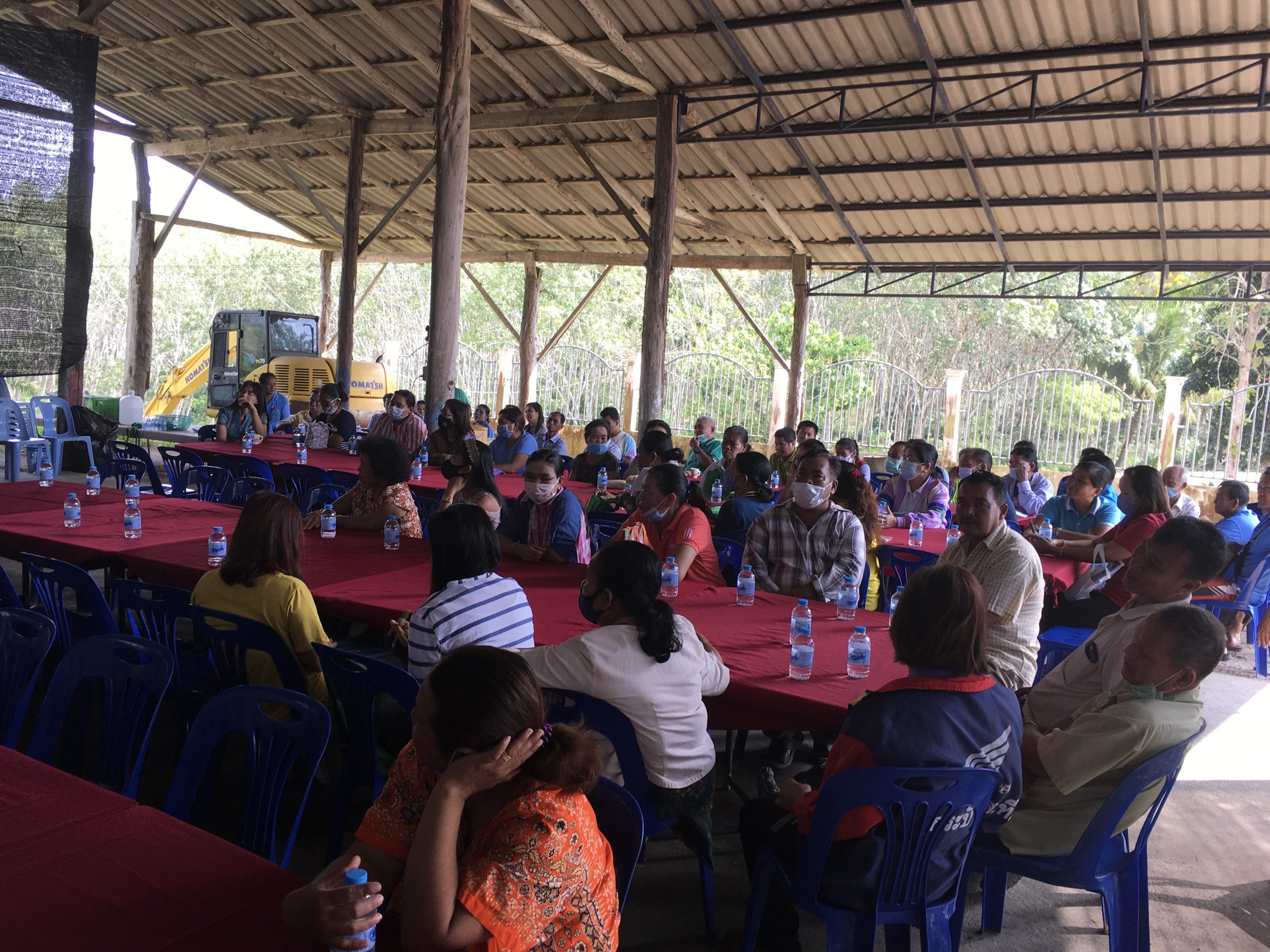
Thappitak Community Enterprise Group
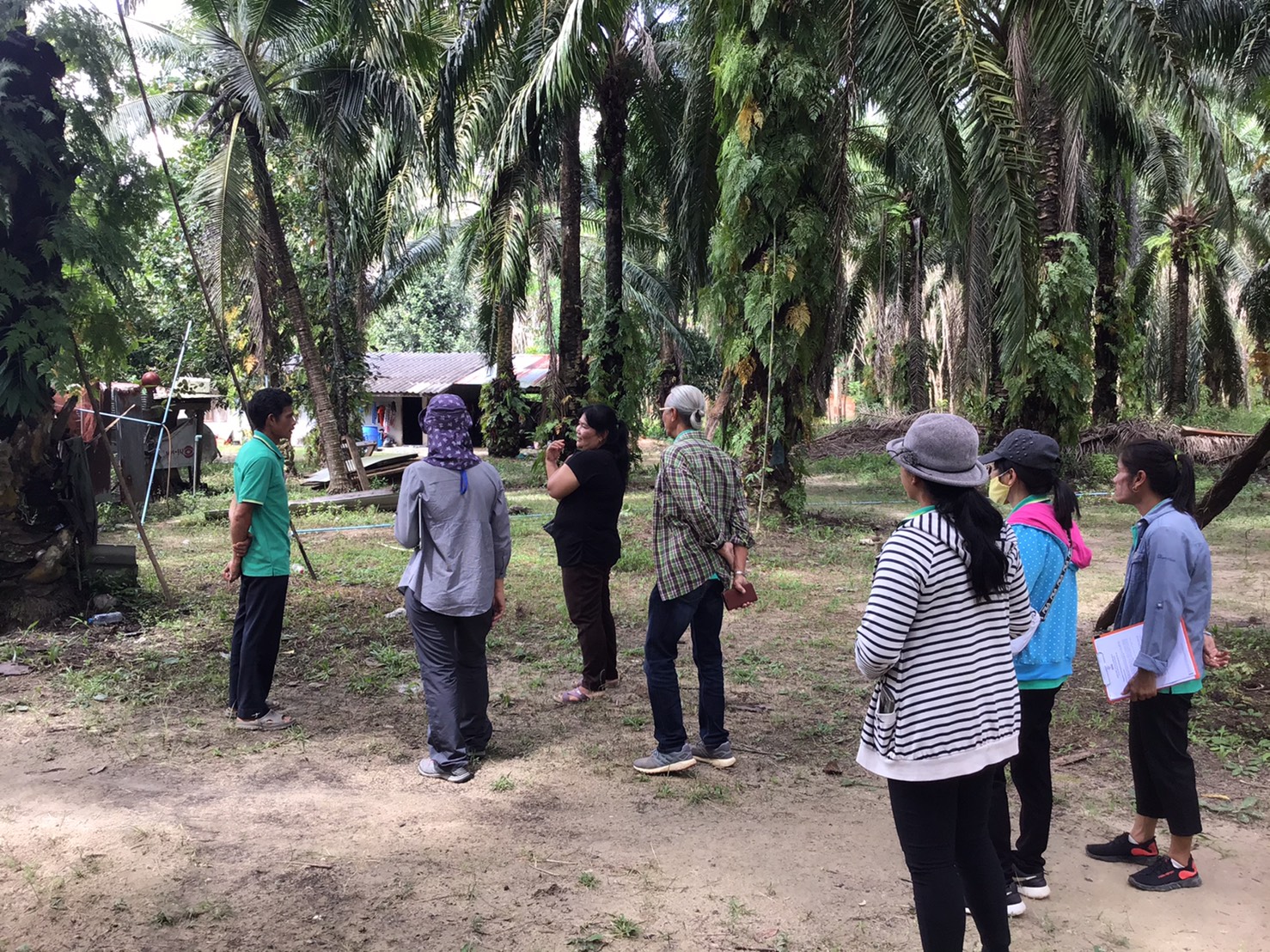
Thappitak Community Enterprise Group
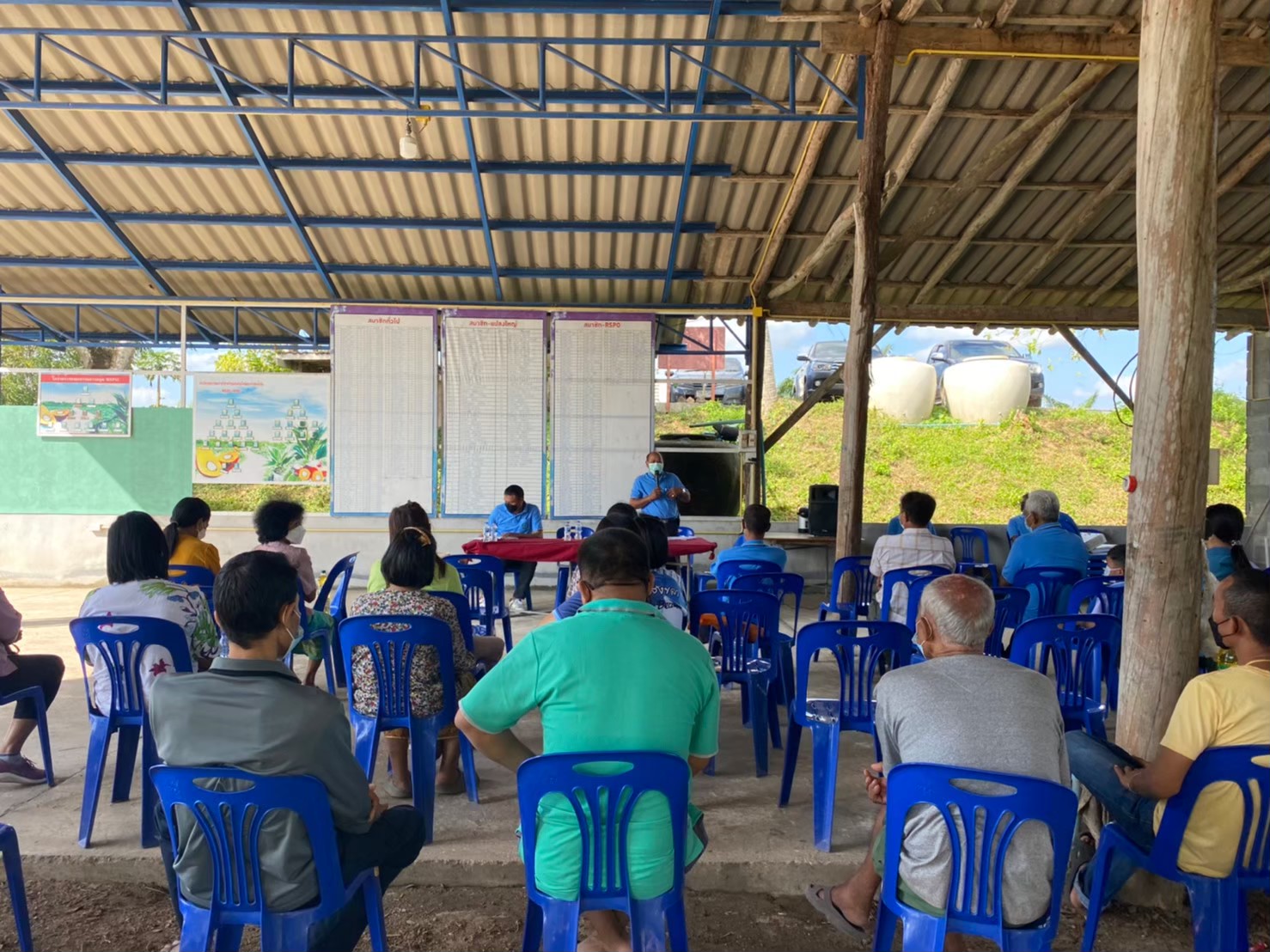
Thappitak Community Enterprise Group
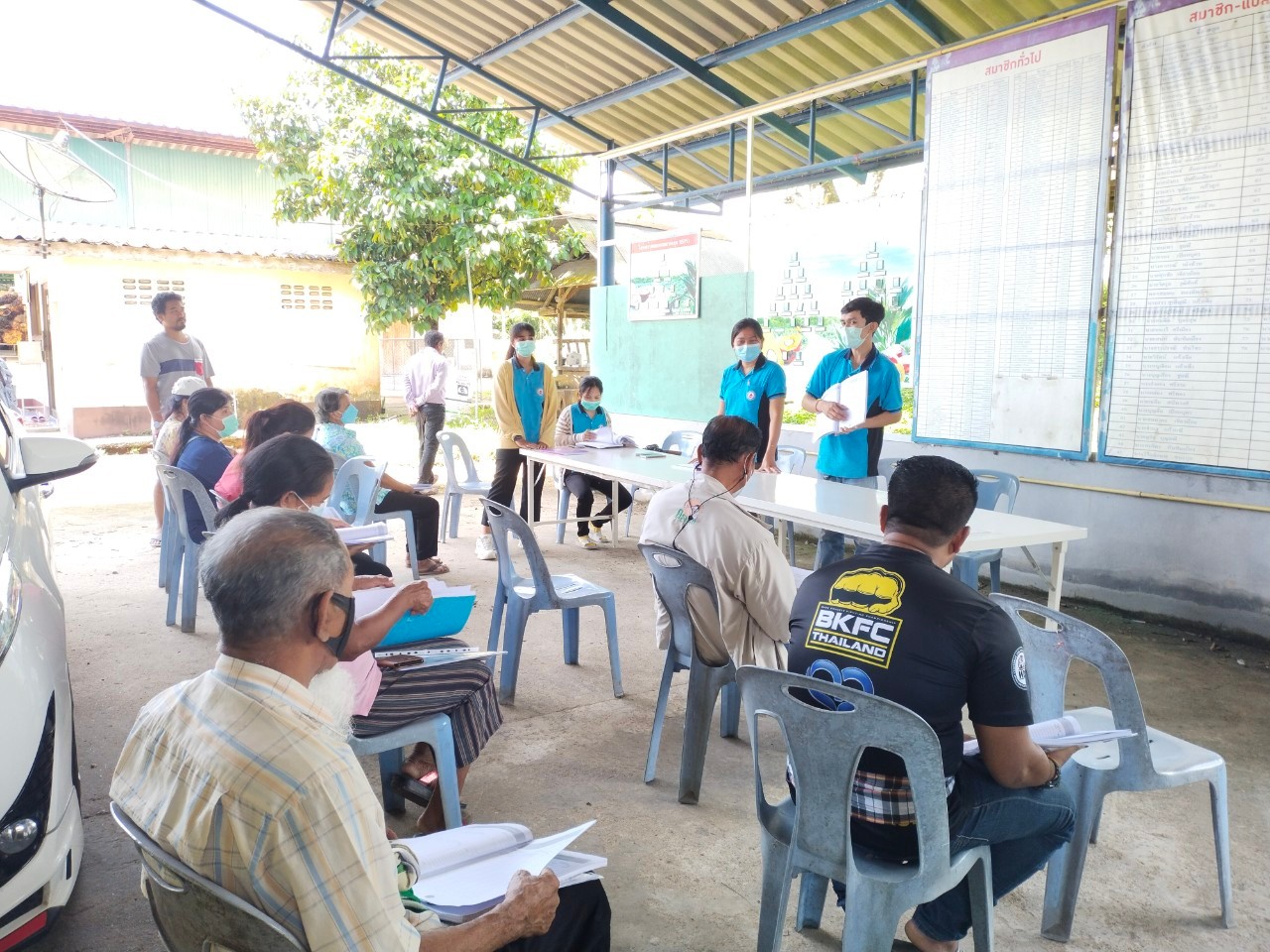
Thappitak Community Enterprise Group
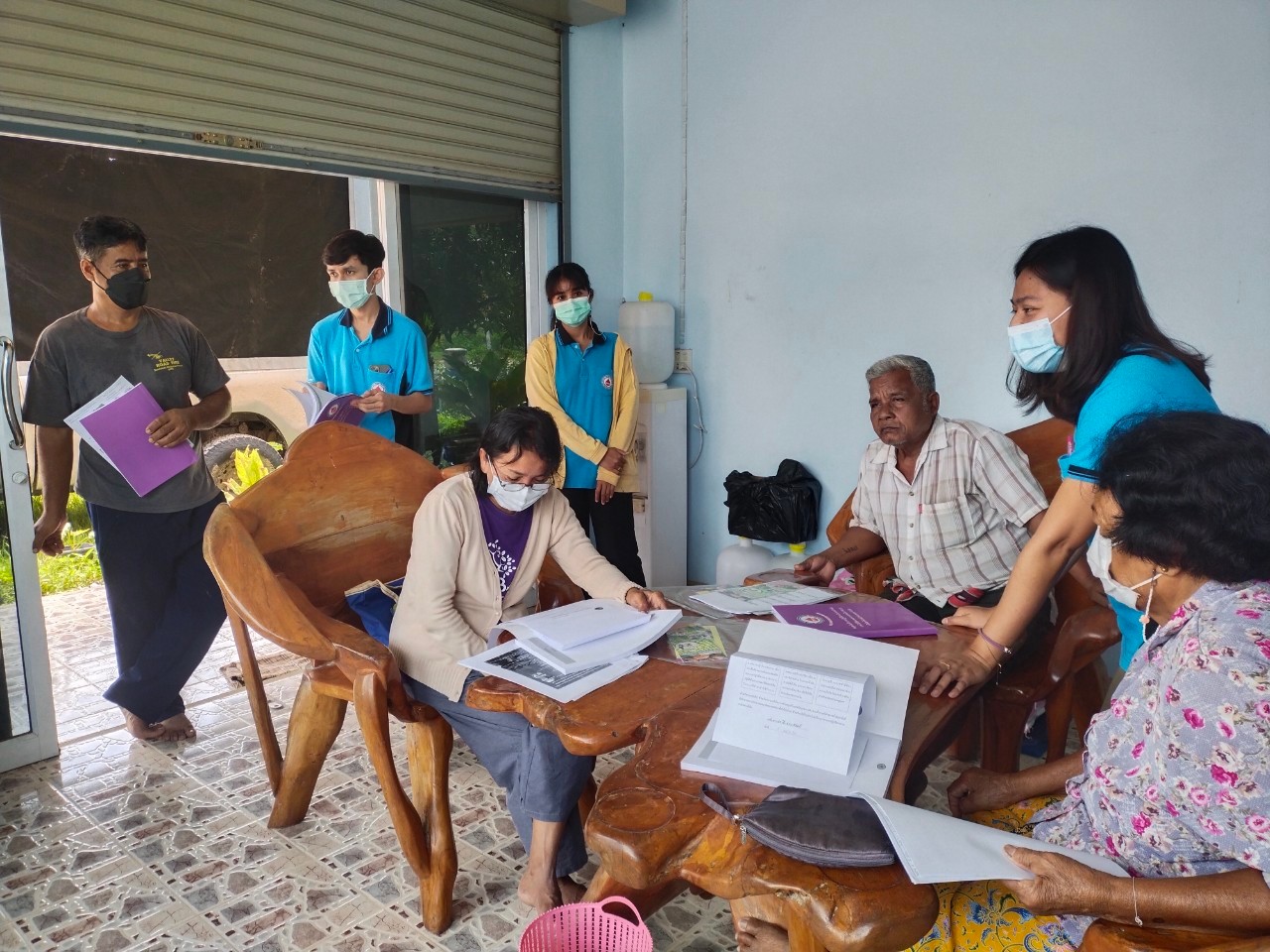
Thappitak Community Enterprise Group
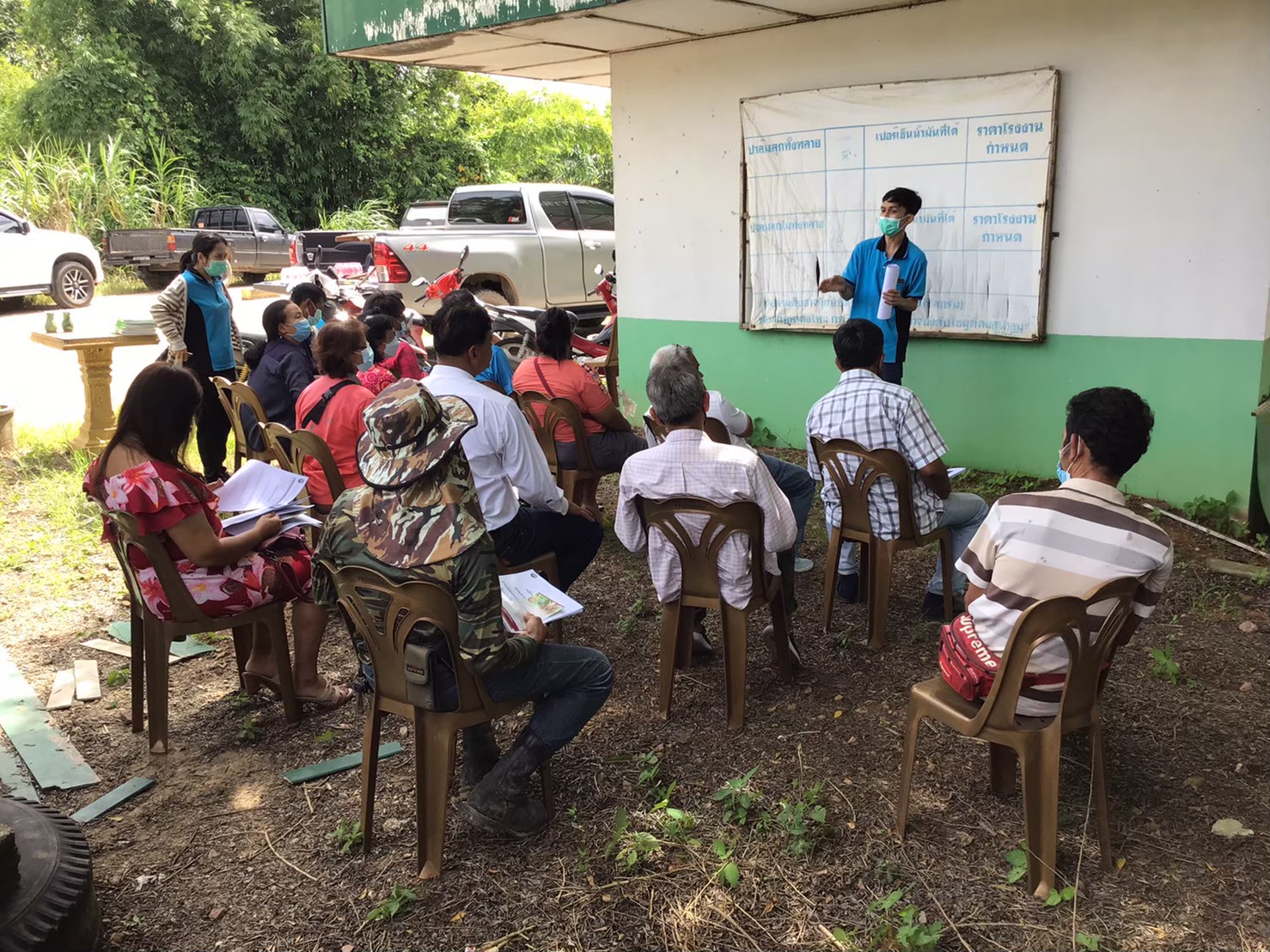
Thappitak Community Enterprise Group



